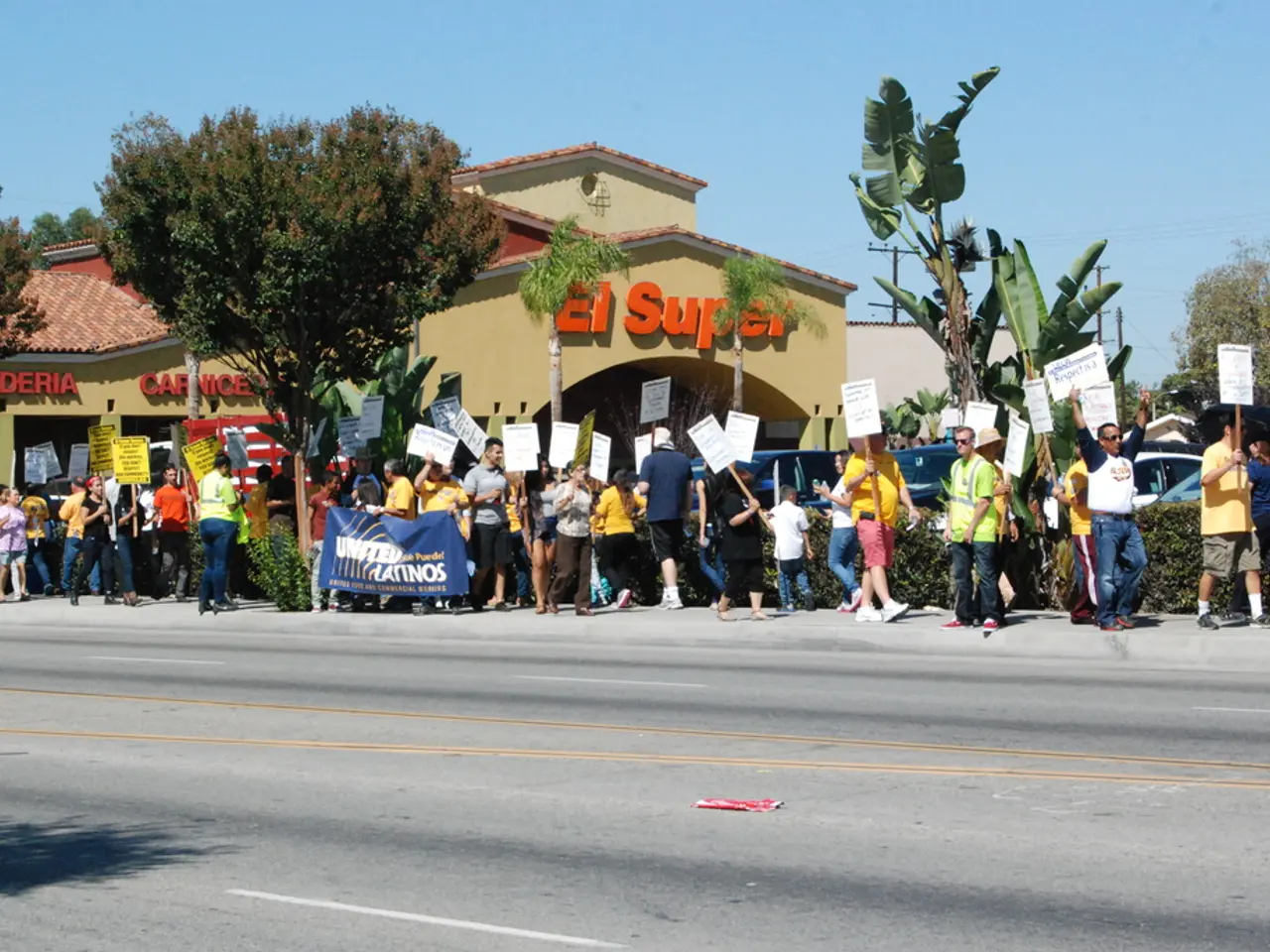Admitted by Archbishop: Lack of Accurate Information - Cleric acknowledges he was deceived about certain matters
In a recent turn of events, the scientist Frauke Brosius-Gersdorf has found herself at the centre of controversy, with Archbishop Herwig Gössl and other Catholic bishops accusing her of misrepresenting the issue of life protection, particularly in relation to abortion and the constitutional dignity of unborn life.
Brosius-Gersdorf, a nominee for the German Constitutional Court, has been under scrutiny due to her views, which some see as diminishing the dignity and rights of the unborn. In a published paper, she suggested that the constitutional guarantee of human dignity might only apply from birth, and that considering the dignity of the embryo or fetus as equal to that of a born person is a "biologistic-naturalistic fallacy." She also argued for the constitutional permissibility of abortion within the first twelve weeks of pregnancy.
In response to these criticisms and accusations, Brosius-Gersdorf publicly clarified her actual position. She rejects the notion that she denies the dignity of unborn life or supports abortion "until birth." Instead, she asserts that the right to life begins at the moment of implantation, which is earlier than birth but constitutionally nuanced.
Brosius-Gersdorf also highlighted the constitutional dilemma: if the unborn are granted the same dignity as born individuals, abortion could be absolutely impermissible even in life- or health-threatening cases for the pregnant woman. Her stance is based on a careful constitutional analysis rather than a moral denial of life’s dignity.
The scientist has received support from nearly 300 professors, legal scholars, and former Constitutional Court judges, who defend her academic qualifications and condemn the politicized nature of the attacks against her.
Archbishop Gössl has admitted to being misinformed and previously stated that Brosius-Gersdorf denied the right to life of unborn children. Brosius-Gersdorf found it particularly disturbing that Gössl spoke of an "abyss of intolerance and contempt for people" in reference to her person. However, in a recent phone call, Brosius-Gersdorf clarified that she has always advocated for the protection of unborn life.
Bishop Georg Bätzing of Limburg and Bishop Bätzing, the chairman of the German Bishops' Conference, have come to Brosius-Gersdorf's defense, stating that she does not deserve to be treated in such a manner. The pressure against Brosius-Gersdorf in the Union had become too great, leading to the temporary removal of her election to the German Constitutional Court from the Bundestag's agenda last Friday.
This incident underscores the importance of accurate understanding and open dialogue in matters of public discourse, particularly when it comes to complex issues such as life protection and constitutional law.
In the midst of this heated debate, it's worth noting that Brosius-Gersdorf, despite being under scrutiny, has repeatedly asserted her advocacy for the protection of unborn life. Her stance Challenges the existing policy-and-legislation regarding the constitutional rights of unborn individuals and sparks discussions in the realm of politics and general-news, shedding light on the intricacies of life protection and constitutional law.






